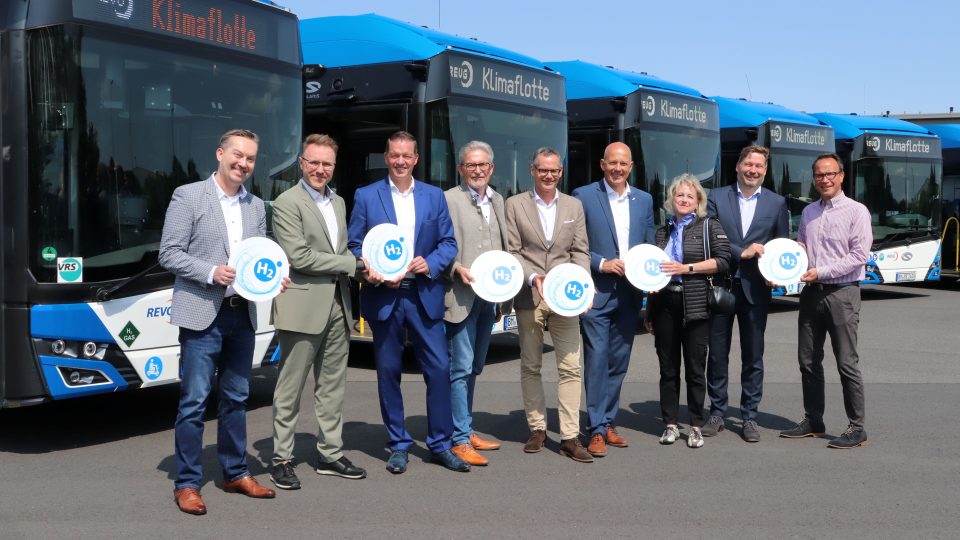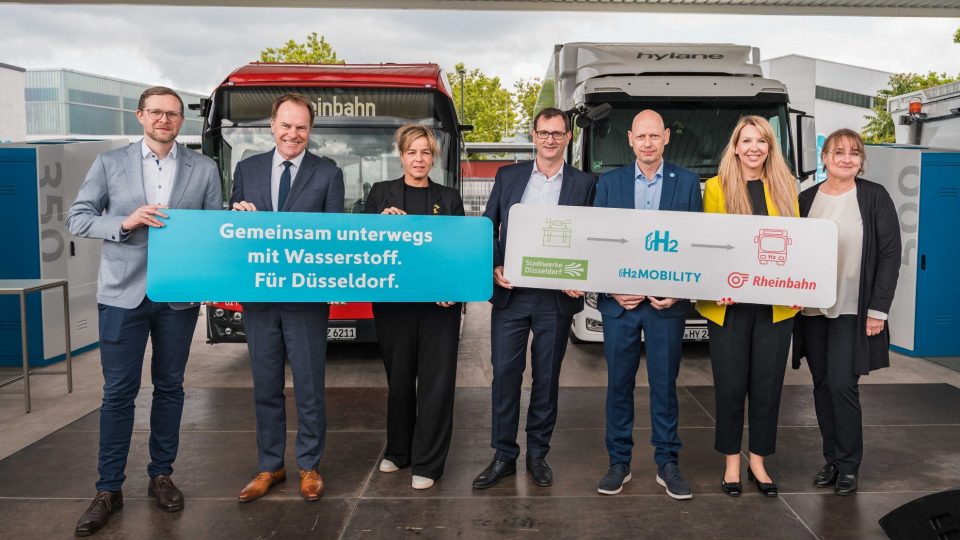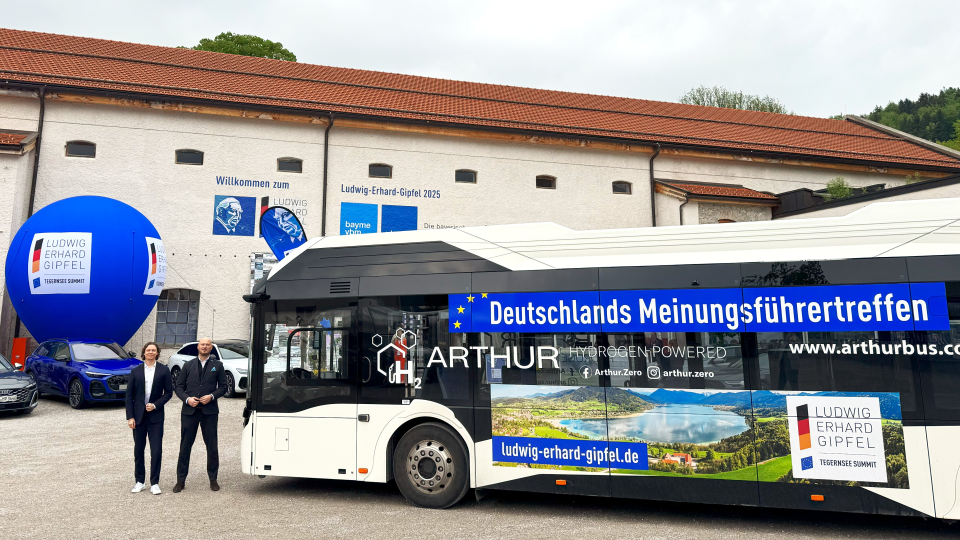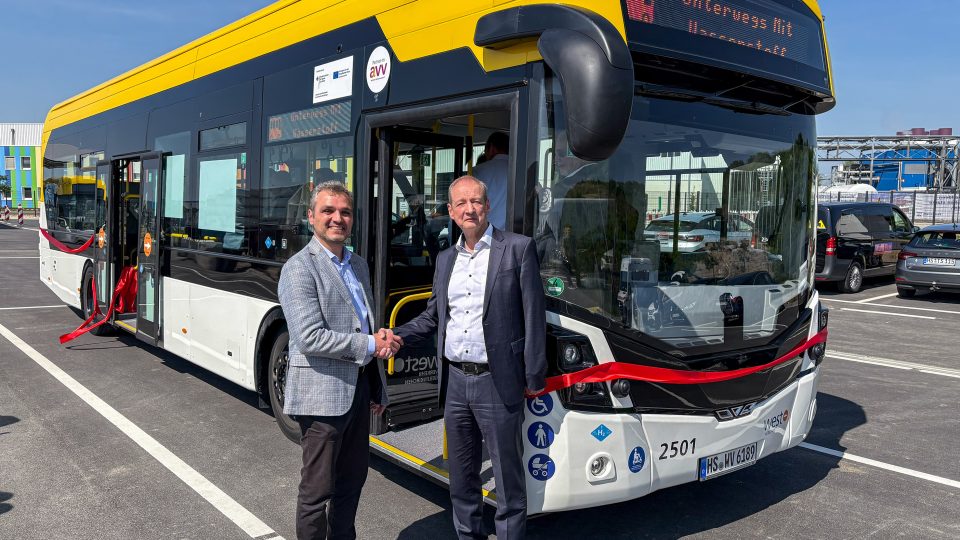Daimler Buses tells about how the eCitaro fuel cell was winter-tested on the Alps ahead of series production
Daimler Buses has tested its new Mercedes eCitaro fuel cell bus in extreme alpine conditions before the start of series production. The eCitaro fuel cell, the first regular-service bus by Daimler Buses equipped with a fuel cell to extend its range, demonstrated its capabilities during a challenging winter alpine crossing. After that, it was unveiled […]
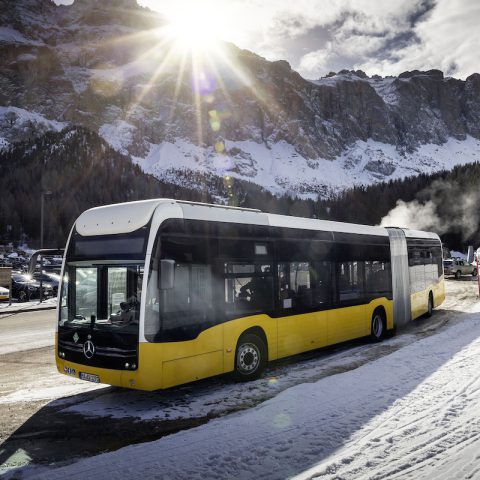
Daimler Buses has tested its new Mercedes eCitaro fuel cell bus in extreme alpine conditions before the start of series production. The eCitaro fuel cell, the first regular-service bus by Daimler Buses equipped with a fuel cell to extend its range, demonstrated its capabilities during a challenging winter alpine crossing. After that, it was unveiled at UITP Summit.
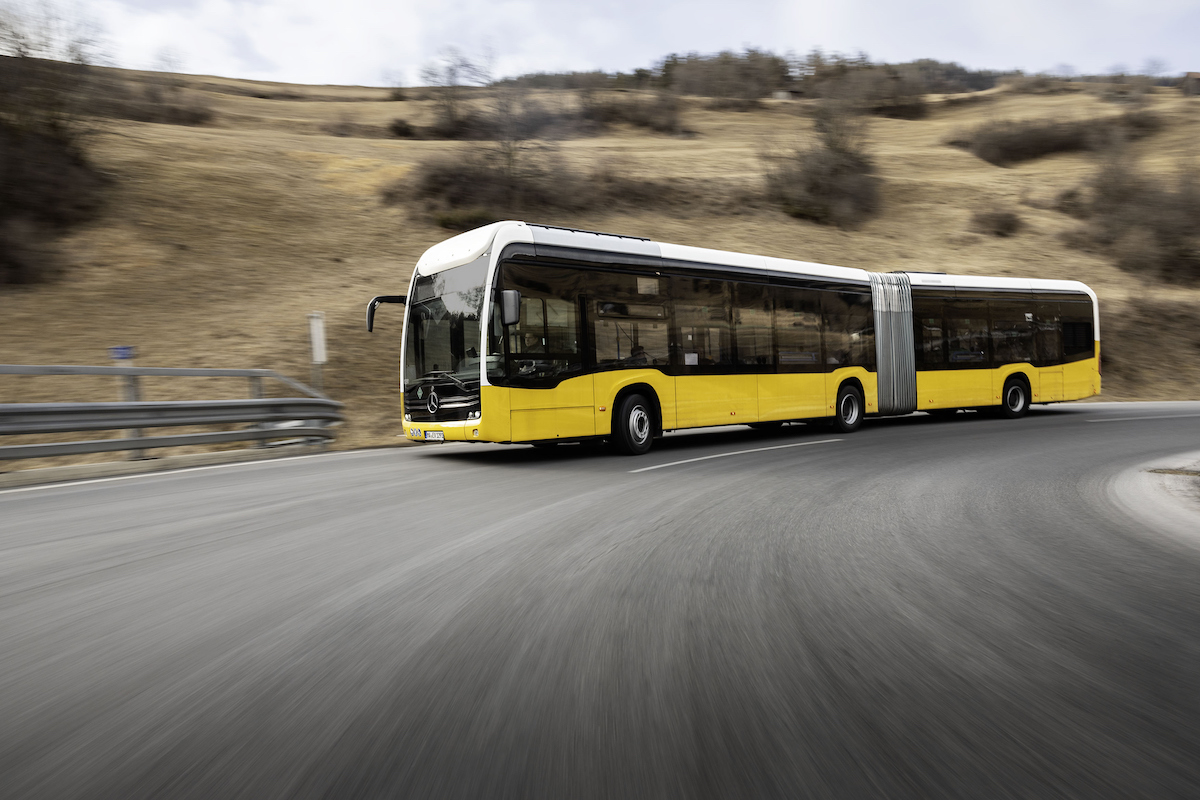
The test run, conducted by a team of Mercedes-Benz engineers in early 2023, included cold-starting behavior, thermal management system performance, and fuel cell functionality at high altitudes. “The runs at elevations of more than 1,700 metres above sea level were intended to provide insights into the function of the fuel cell system at extreme altitudes. The new drive system also had to prove its performance on demanding mountain pass runs with uphill and downhill gradients of as much as 15 percent”, Daimler Buses states in a press note intended to tell about the journey.
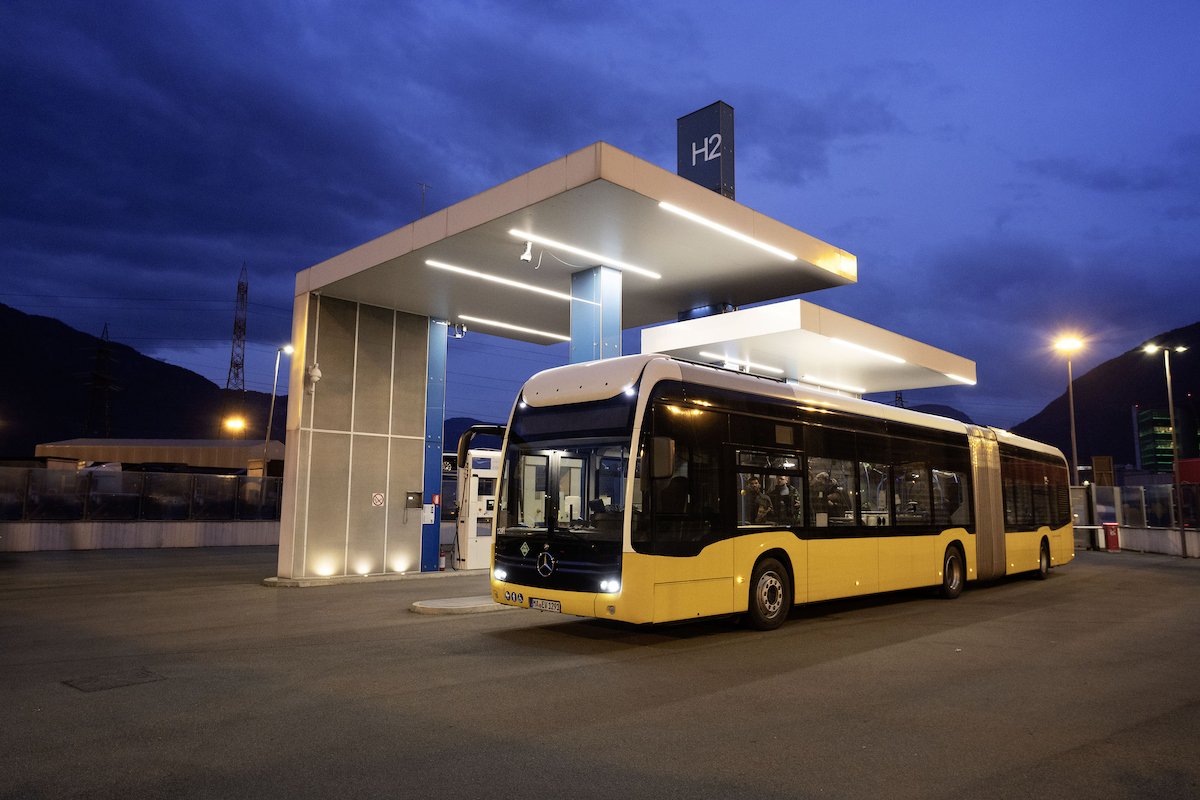
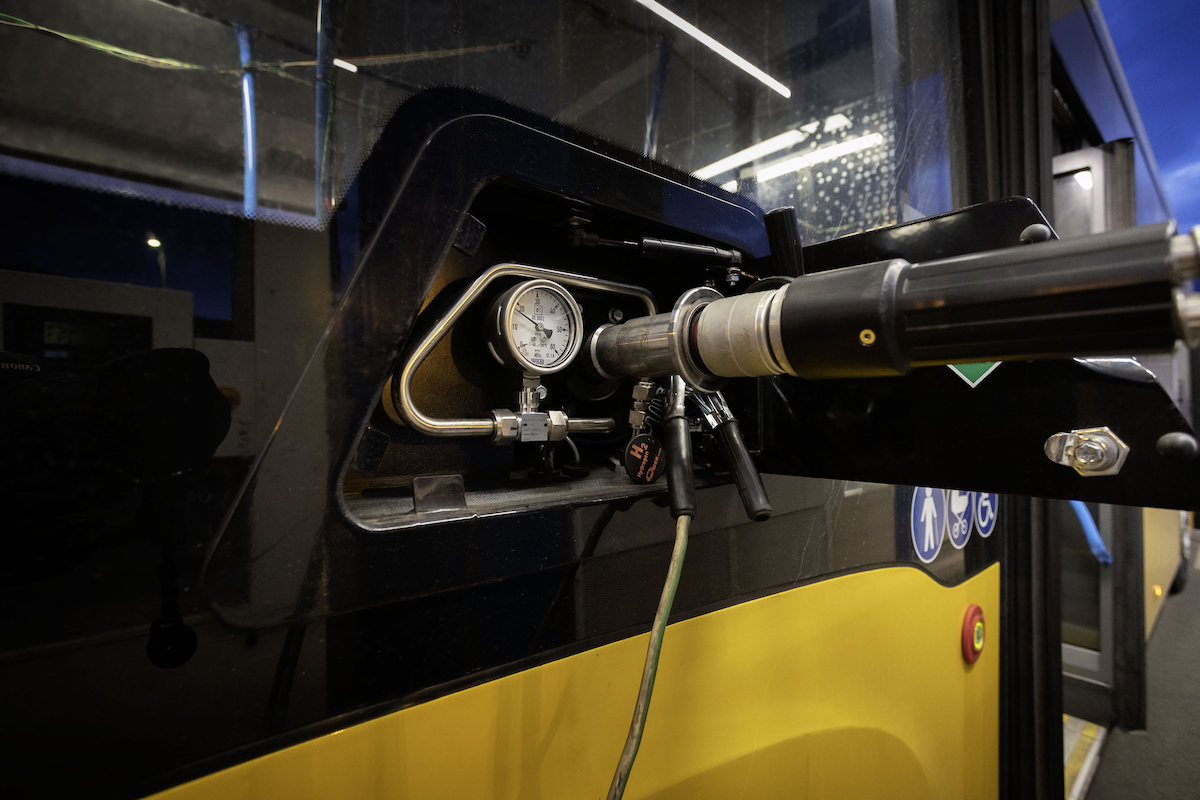
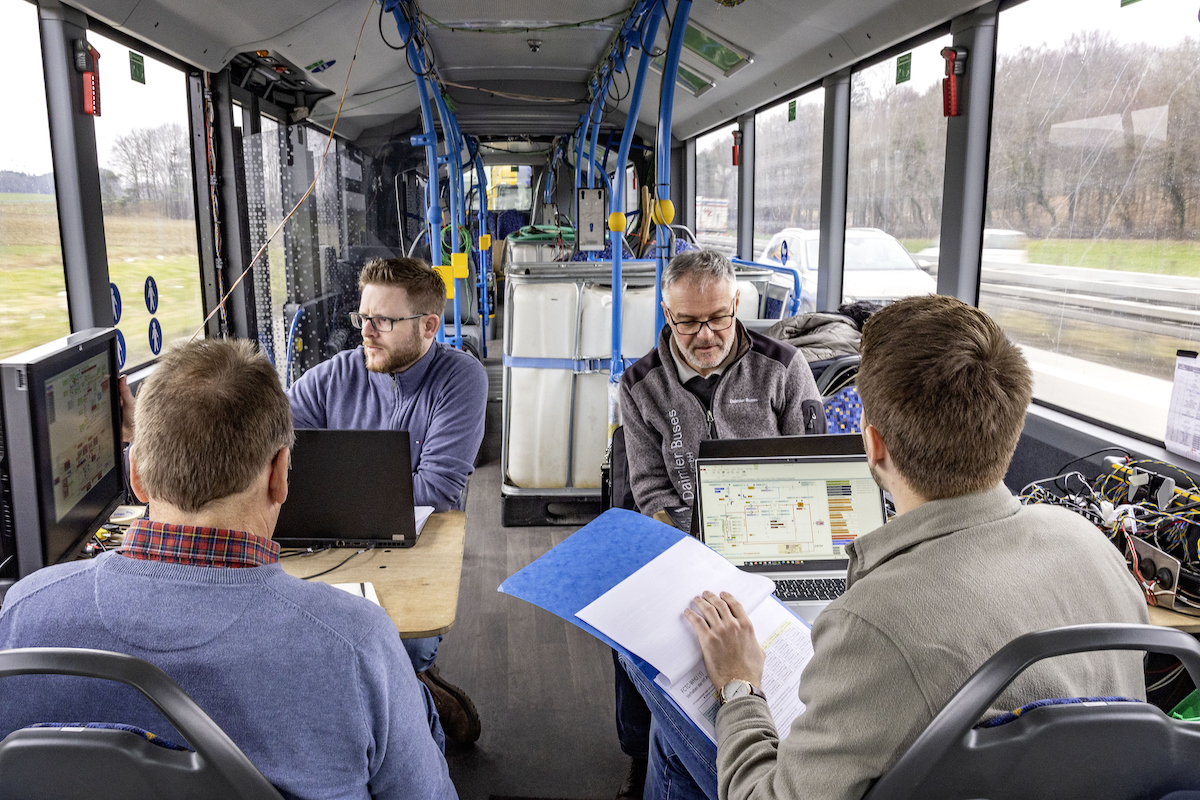
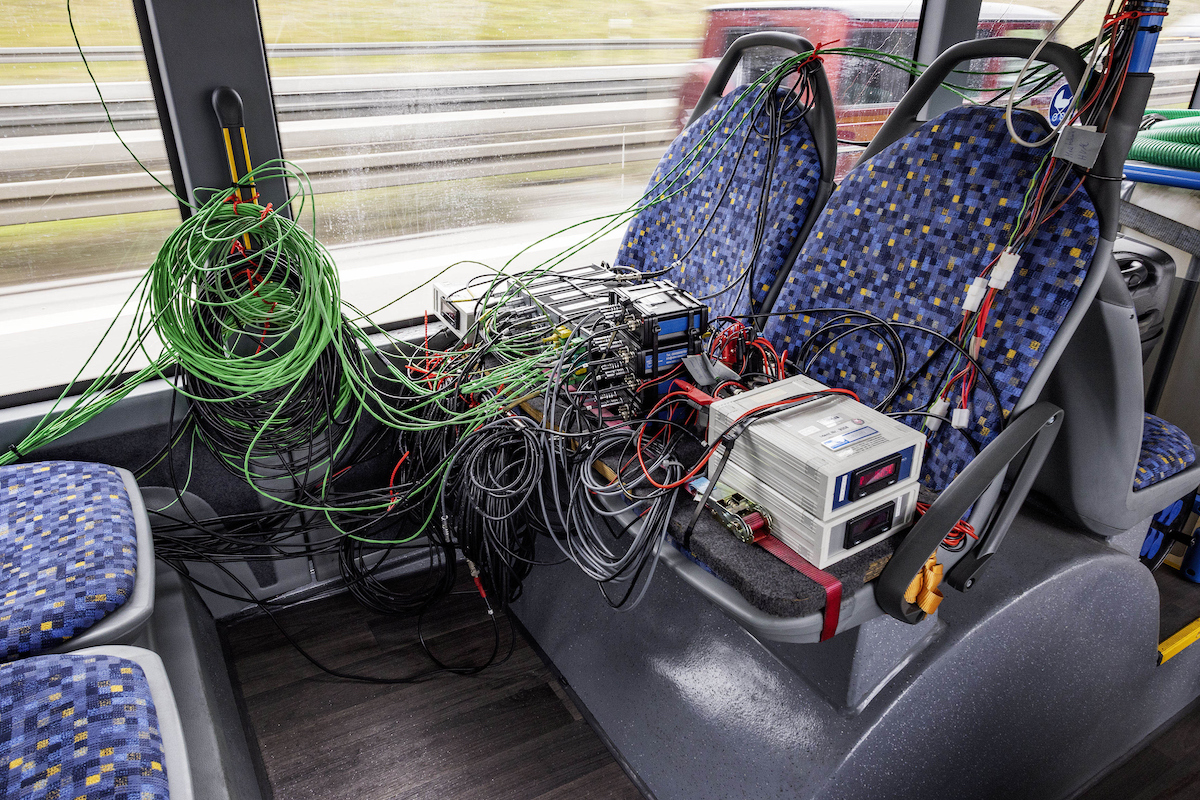
Mercedes eCitaro fuel cell tested in winter conditions
The fuel cell bus faced freezing temperatures and steep gradients as it made its way through the South Tyrolean Alps. This test vehicle, driven by Andreas Hoffmann, is one of the four prototypes developed by Mercedes-Benz.
The engineers Rainer Bickel, Stephan Lutz and Hannes Mayer monitored various parameters, including temperature, energy consumption, and battery charge levels, throughout the journey. The team successfully covered a 360-kilometer route, crossing the Alps from Neu-Ulm to Bolzano, using a combination of battery-sourced and hydrogen power. The eCitaro fuel cell demonstrated efficient power usage even on steep inclines, thanks to its new thermal management system and high recuperation during braking.
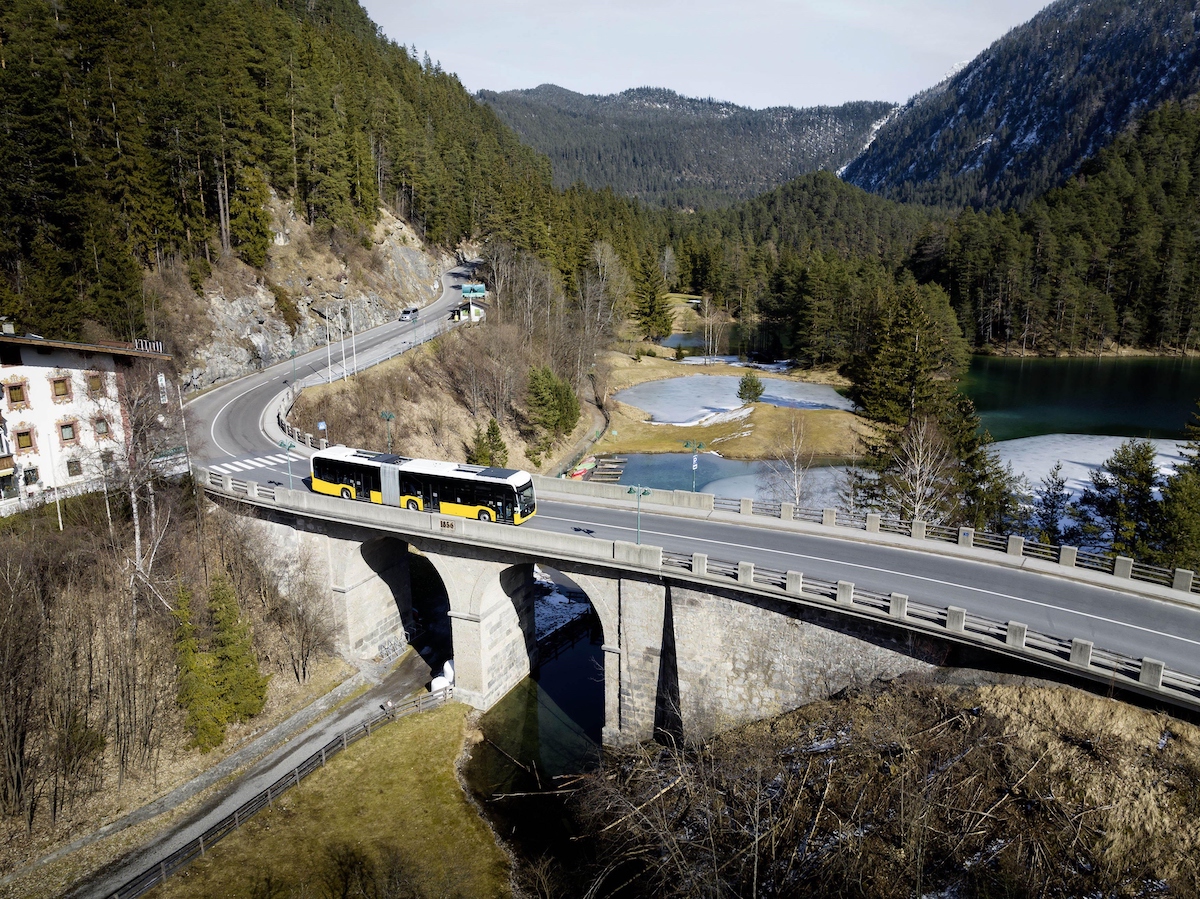
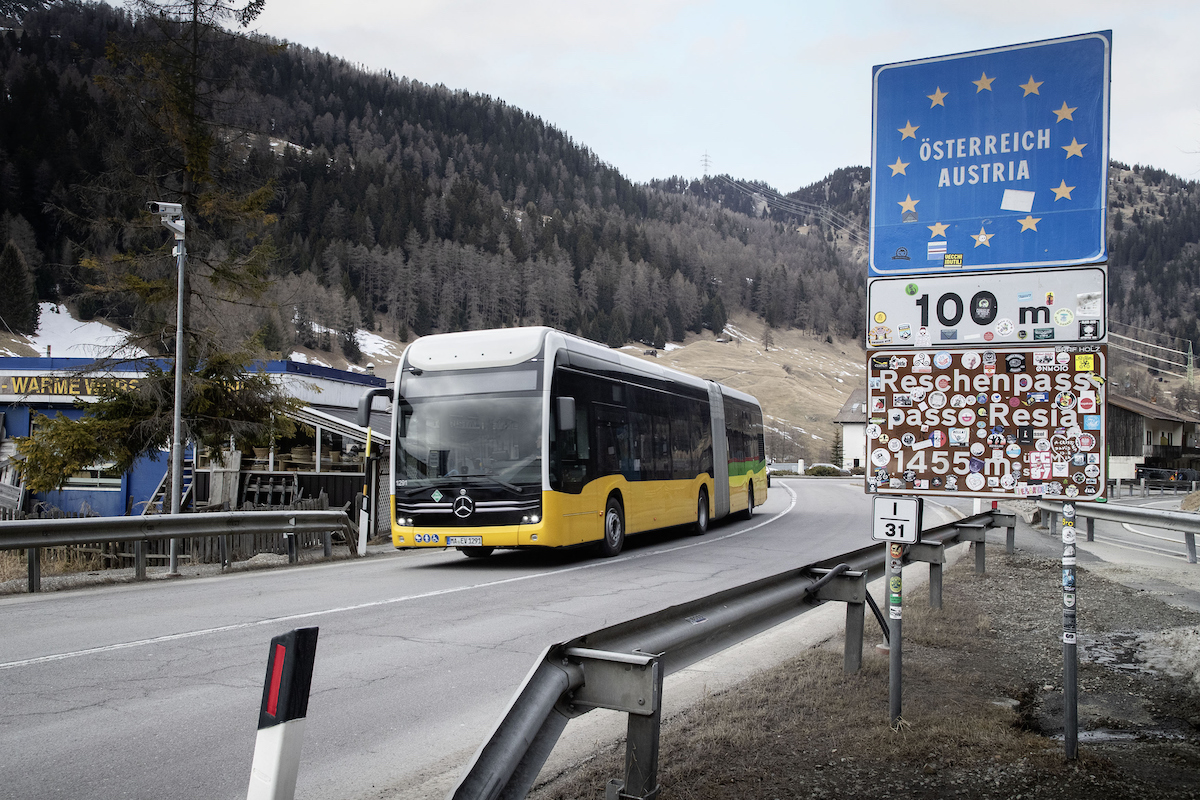

The manufacturer stresses: “The positive energy balance lasted to the target of crossing the Alps at Bolzano: after 368 kilometres and opportunity charging with around 55 kWh, the battery charge indicator still showed 56 percent SoC (state of charge). The hydrogen tanks were also still amply filled at 42 percent”.
Winter trial for the eCitaro fuel cell
“Yet the winter trial is just one of several tests that the eCitaro fuel cell has to undergo before it enters series production starting in the summer,” stressed Shahrukh Javed, Project Manager for the eCitaro fuel cell. “In particular, the hydrogen tanks and the fuel cell system have successfully completed extensive safety tests, some of which go beyond those required by law. The eCitaro fuel cell met the challenges of this alpine run with flying colours. Thanks to the new energy management system, the fuel cell mainly operated in the most efficient range between 20 and 30 kW, even on long and steep inclines. The new thermal management system was shown to be an important building block for energy efficiency by using the waste heat from the fuel cell optimally to control the temperature in the passenger compartment. On this demanding test journey, the eCitaro fuel cell exceeded our expectations in terms of range as well as the efficiency of the drive and the fuel cell system




